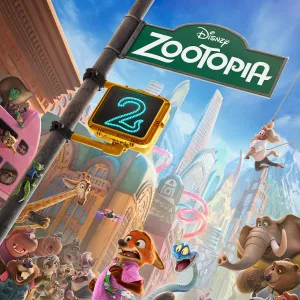Bluey
Welcome to the world of Bluey – the animated TV show that has taken the simple act of playtime and transformed it into a canvas for humor, life lessons, and parenting insights. This Australian sensation has transcended its home shores to tug at the heartstrings and tickle the funny bones of audiences worldwide. Since its premiere in 2018, the story of Bluey, the enthusiastic six-year-old Blue Heeler dog, and her family has not only captured children's attention but also managed to enchant the grown-ups who watch alongside them.
The Many Colors of Bluey's Appeal
At first glance, "Bluey" may appear as just another cute children's show, but it quickly reveals itself to be a layered tapestry of comedy and nuanced storytelling. The episodes, which are crafted into snackable seven-minute installments, waste no time diving into the imaginative escapades of Bluey and her sister, Bingo. The quiet charm of the show, much like the beloved books "Where the Wild Things Are" and "Winnie the Pooh", lies in its ability to encapsulate childhood's boundless wonder and creativity.
However, no show is without its potential hitches, and for "Bluey", it lies in how its representation may feel aspirational to the point of being unreachable for some. Bandit, the super-dad, is a fantastic character—engaged, playful, and ever-patient. Yet, his portrayal as the almost impossibly perfect parent can inadvertently cast a shadow of inadequacy over mortal moms and dads watching. His omnipresence in play can set a standard that feels pressurizing and leaves some adults reflecting on their parenting methods with a mix of awe and self-doubt.
Beyond parenting representation, "Bluey" also raises a question of diversity. While the show has made efforts to incorporate various family dynamics and backgrounds, there have been critiques regarding its reflection of modern societal diversity. An Australian hit now watched globally, "Bluey" has the potential to further expand its canvas to include a more variegated portrayal of family and community, which would only deepen its connection with a worldwide audience.
Embracing the Bluey Phenomenon with Paws Wide Open
As viewership numbers and online fan chatter attest, "Bluey" has undoubtedly struck a chord with its audience. It sparks a joy that is pure and a connection that is genuine. The show's widespread acclaim has not just stemmed from its Emmy win or the recognitions from noted publications; it is also derived from the countless viewer testimonies – be it emotional confessions from parents on social media or the excited squeals of children reenacting Bluey's antics.
Real-life parental figures share a silent nod of kinship with Chilli and Bandit, the parent duo that makes sure life is not just lived but also played. Despite its minor pitfalls and areas ripe for growth, the viewer's impression of "Bluey" remains overwhelmingly positive. It has become a touchstone for modern families, a reference for playfulness, and a reminder of the fleeting, precious nature of childhood.














